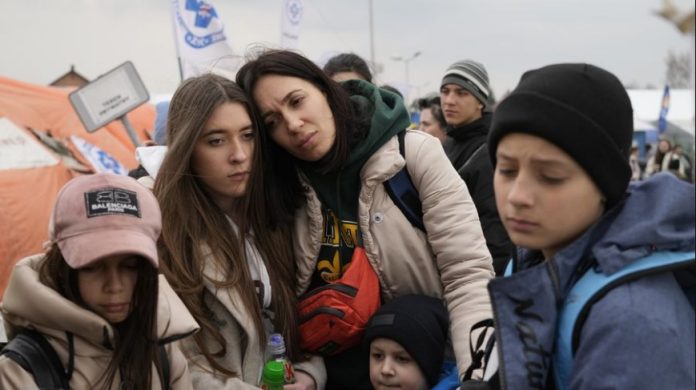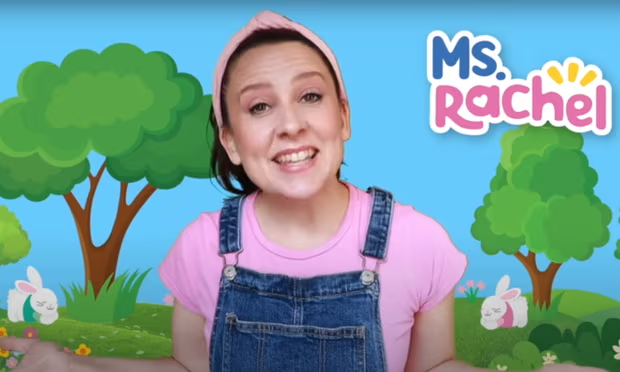From the first day of the war, Georgians have helped the fleeing Ukrainians. But even with help available many are already facing problems
By late September, virtually every media outlet in the world had published or broadcasted images of the ‘Upper Lars’ checkpoint on the Russian-Georgian border. The massive influx of Russians had caused an unprecedented, almost emergency situation. But waiting in the queues that stretched for miles and lasted for several days were not only Russian men fleeing to Georgia, but also Ukrainians fleeing from the war.
This was the route that hundreds of Ukrainian refugees had to take, since many of them had been forcibly deported by the Russian armed forces that were occupying territories in eastern Ukraine. Some were taken without documents, with only the bare minimum. Afterwards, they fled to safety without giving a thought to their papers. More often, they did not even own a passport or if they did, it had expired.
Nevertheless, for those Ukrainians going through yet another ordeal in the form of ‘Upper Lars’, the problem with entering Georgia on expired passports – or with no papers at all – was in fact neither on the Russian, nor the Georgian side. The real difficulties emerged later, when they decided to travel further to Europe, where people fleeing from conflict are offered more consistent support and more sustained integration programmes.
Refugees without documents remain trapped in Georgia, with no consistent support available to them.
This lack of documents needed to travel to European countries literally makes the citizens of Ukraine hostage to circumstance – a situation which is very hard to overcome. Because obtaining a new passport in Georgia is difficult. Ukrainian refugees simply do not have the proof of citizenship required by the Ukrainian embassy to start the process of preparing their identity papers. They can only get these documents from the local migration services – which are currently controlled by the occupying forces.
For the refugees themselves, it is hard to understand why no temporary internationally recognised mechanism has been put in place to replace the documents they need with something similar to the ‘white passport’ – a temporary certificate enabling them to return to Ukraine. Instead, refugees without documents remain trapped in Georgia, with no consistent support available to them. That said, they also recognise that ‘Georgia has enough refugees and is itself facing a humanitarian crisis’.
From the very first days of the war, the Georgian population was heavily involved in providing moral and material support to the Ukrainian people, calling the conflict in Ukraine ‘their’ war. For a period of three months, Ukrainians fleeing the war received the same social assistance from the Georgian government as internally displaced persons from Abkhazia and the Tskhinvali region — 45 lari (around $16) per person per month with an additional one-time payment of 300 lari (approximately $108) per family. These monetary payments became an alternative to accommodation, which the local authorities provided from July onwards as part of a special assistance programme for Ukrainian refugees. The programme for the resettlement of refugees in hostels and hotels across Tbilisi lasted for three months and was then converted into the monetary payment intended for rented accommodation. According to information from the Resettlement Agency, more than 5000 people had been helped under the programme.
Facing many problems
However, as many refugees themselves say, even with this help available, they still face problems. People claim that when they apply for assistance, some are wrongly told that it is a one-time payment, some are told the benefits are intended for those with official refugee status or those who had previously been part of the resettlement programme. Consequently, many of them give up and are left without financial aid.
In late October, a group of Ukrainian refugees wrote to the Georgian prime minister. In the letter, they requested he consider the issue of benefits which could not even be accessed by those who had previously been part of the resettlement programme. Georgia lacks volunteer assistance programmes which are supported by the local authorities. All help provided to refugees, as a result, comes from grassroots volunteer organisations which were set up in Tbilisi at the start of the full-scale war.
The prices of accommodation in Tbilisi increased so dramatically that it has become more difficult to find anywhere to live, not only for refugees but also for the local population.
One of these organisations is the Motskhaleba foundation. Since the beginning of Russia’s full-scale invasion of Ukraine, this foundation has been running a shelter for refugees. Today, the demand for accommodation increases month on month. Despite the fact that the shelter officially only has 12 places, 20 refugees are currently living there. They receive a bed and food for six weeks. After that, people have to look for accommodation on their own.
But the main problem is that after the mobilisation drive was announced – resulting in a mass influx of Russians – the prices of accommodation in Tbilisi increased so dramatically that it has become more difficult to find anywhere to live, not only for refugees but also for the local population.
READ ALSO: China Won’t Give In to U.S. Bullying – Communist Party’s Leading Paper
Many students from the suburbs attending university in the capital are now simply unable to find affordable accommodation. Added to this, refugees also struggle to find work. Women sometimes manage to find jobs as cleaners or nannies, paying around 20 lari per day (approximately $7). But the shelter also houses older people who are simply not fit enough to go out to work and therefore cannot earn enough money to pay rent.
The Georgian government recently announced that it would be continuing its social and economic assistance programme for another six months. But at the end of this period, most Ukrainian families will be back to the problems they face on a daily basis. Their personal savings are already running out, they do not have enough money to pay rent in the long term, nor are they able to pay for food or the medicine they need.
It is important to remember that Ukrainian refugees arriving from the eastern and southern regions of the country have already survived the horrors of Russian occupation. They want to be able to send their children to schools where Ukrainian classes have been set up. But there simply aren’t enough places for everyone. An alternative are Russian schools, but after everything they have been through, this would be a bitter pill to swallow. Children who spent months living in their basements reject anything associated with Russia.
Their greatest wish is to go home, but life under the yoke of occupation and the inability to openly express their pro-Ukrainian stance means they do not yet have the ability to do so. So, they continue their lives in a foreign country buoyed by hope and plans which always begin with the words: ‘when the war is over…’.
Original Post












